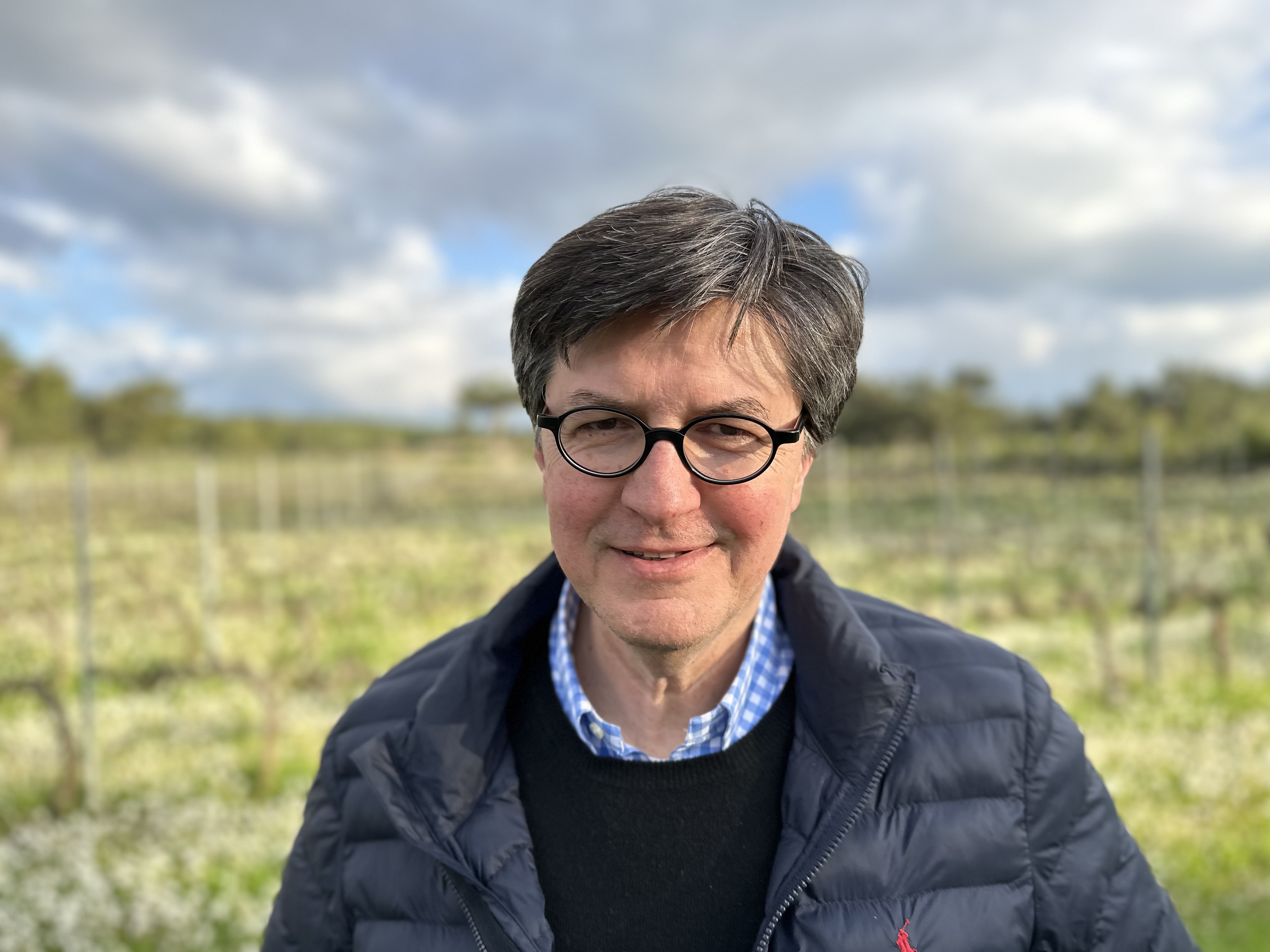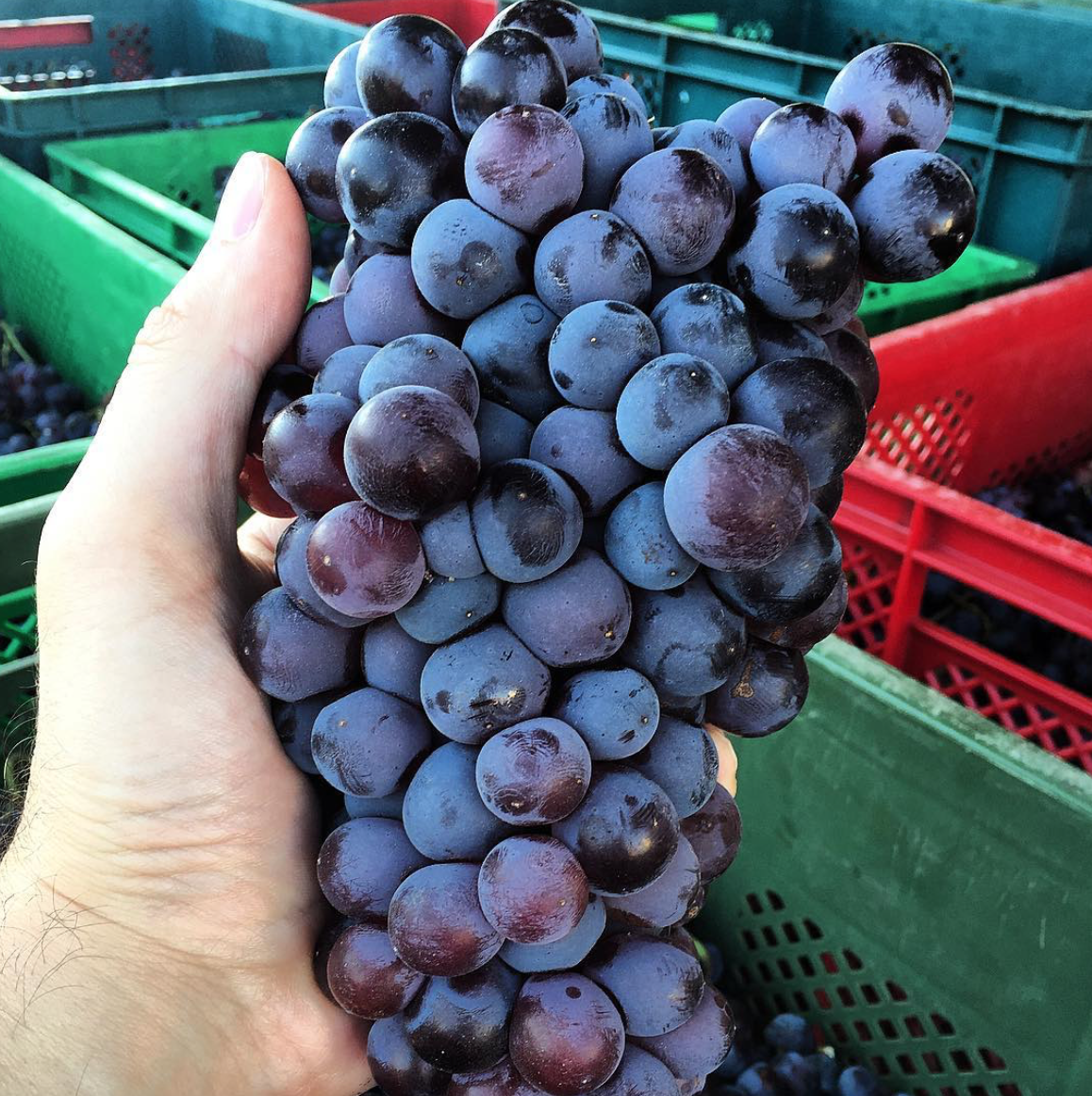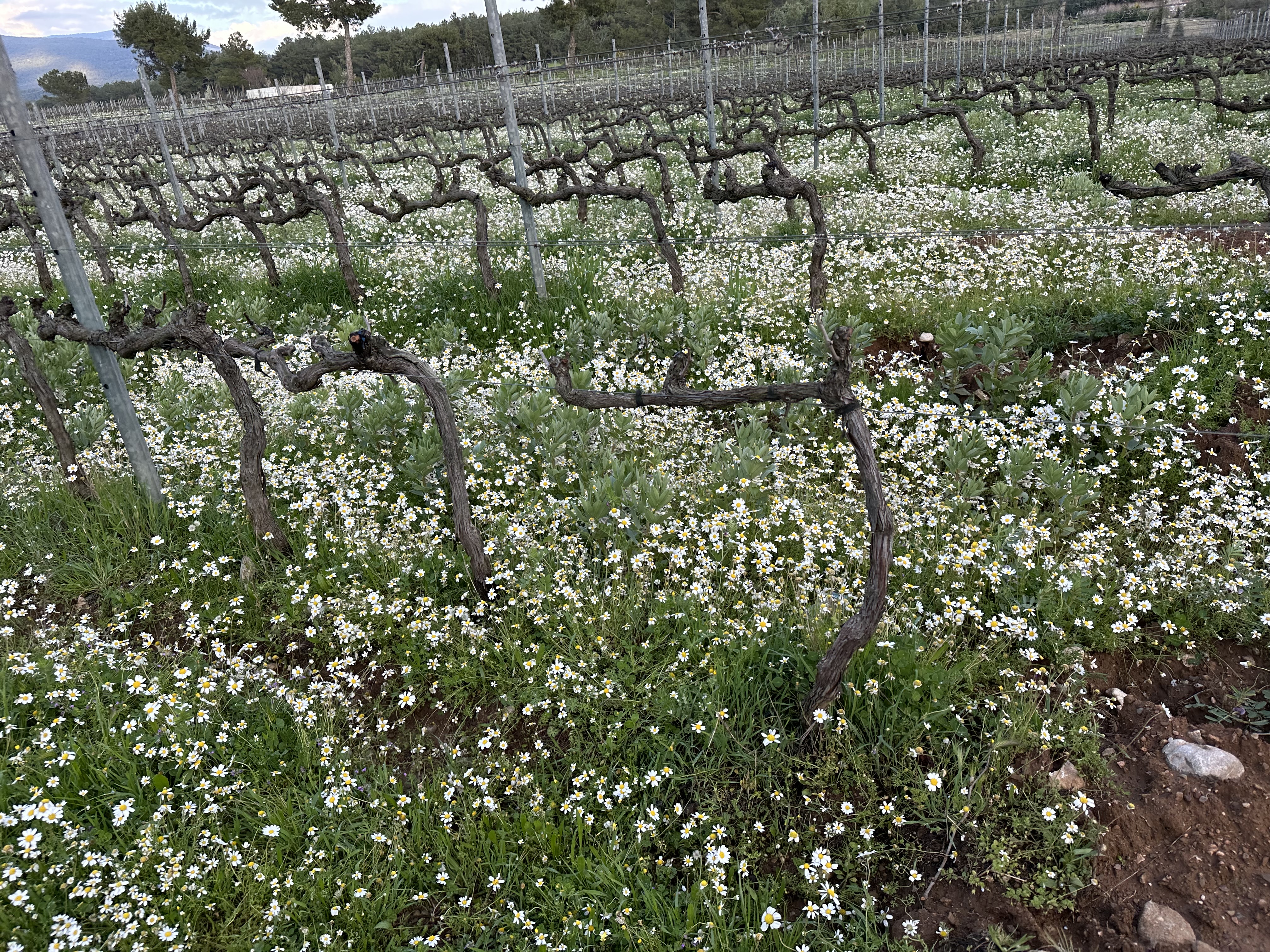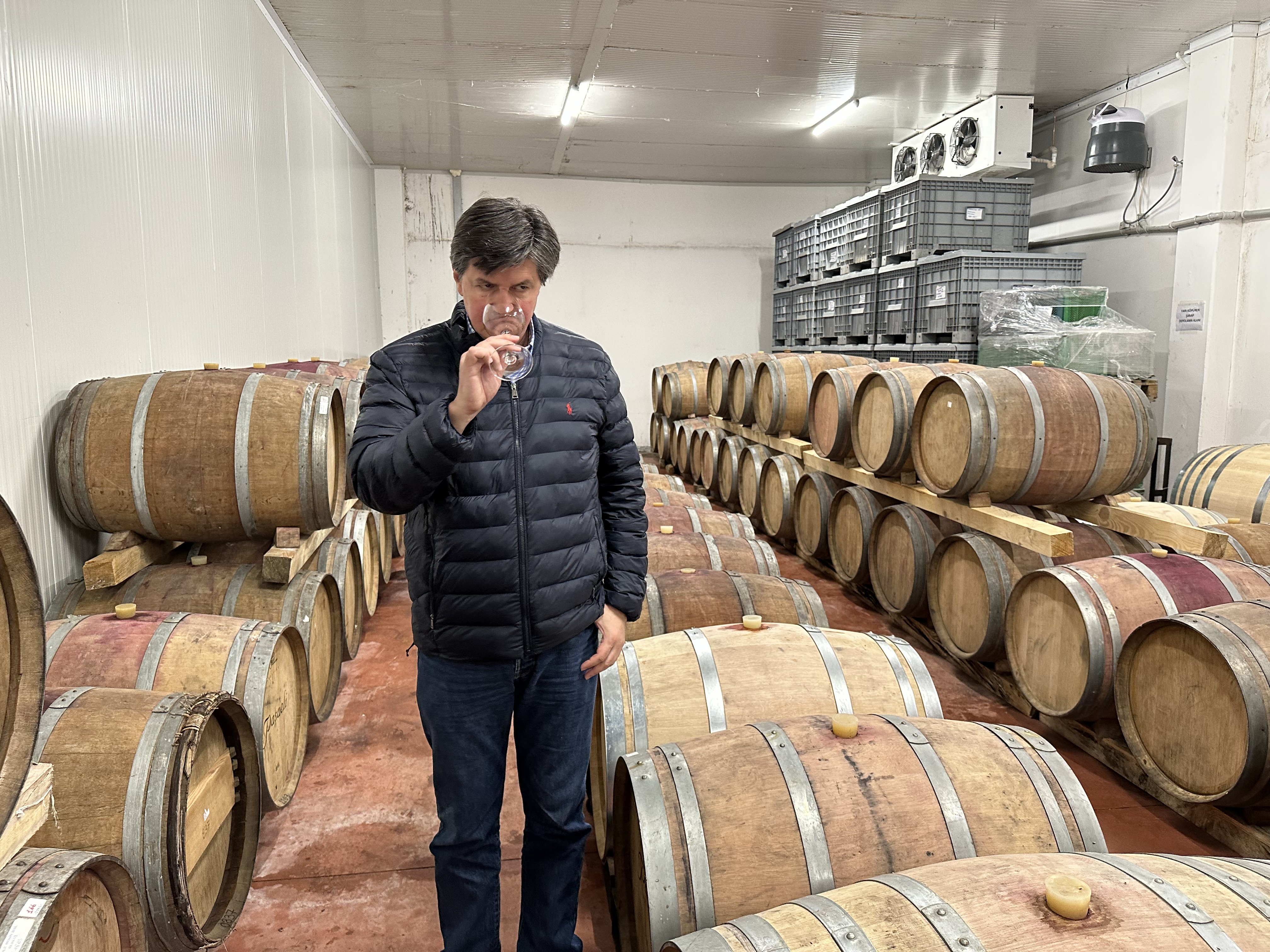Turkey, a country with a rich history and diverse culture, has been gaining recognition in recent years for its burgeoning wine industry. Among the pioneers leading this transformation is Seyit Karagözoğlu, a visionary winemaker, and his renowned winery, Paşaeli Wines. Their story is one of passion, innovation, and a commitment to showcasing the unique terroir of Turkey through exceptional wines.
In 2000, Seyit Karagözoğlu, founded Paşaeli Wines in western Turkey, near the town of İzmir. The winery takes its name from the ancient city of Paşaelis, reflecting Seyit's commitment to blending modern winemaking techniques with Turkey's rich historical and cultural heritage.
One of Seyit's defining characteristics as a winemaker is his devotion to indigenous grape varieties. He recognized the potential of Turkey's native grapes to produce distinctive and memorable wines. Varietals like Karasakız, Kolorko and Yapıncak which may be unfamiliar to many wine enthusiasts, have become stars in the Paşaeli portfolio. Through meticulous vineyard management and winemaking practices, Seyit has elevated these grapes to international acclaim, proving that Turkey has its unique place in the world of wine.
The terroir of Turkey is as diverse as its culture, with various microclimates and soils that allow for a broad spectrum of grape cultivation. Paşaeli Wines showcases this diversity through its vineyards spread across different regions, from the sunny Aegean coasts to the cool Anatolian plateaus. Each vineyard's unique characteristics are harnessed to produce wines that reflect the essence of their origins, offering a journey through Turkey's diverse landscapes in every sip.
Quality and sustainability are at the heart of Paşaeli's philosophy and they focus on low-yield cultivation and sustainable farming practices. Organic and biodynamic principles are employed whenever possible to minimize environmental impact and ensure the health of the vines.
Grape Collective talks with Seyit Karagözoğlu about Turkey's emergence onto the global wine stage.
Christopher Barnes: Tell us a little bit about the history of winemaking in Turkey.
 Seyit Karagözoğlu: Wine has always been made in the Empire. But production really took off with the Turkish Republic after it became a republic in 1923. But mostly in the 1930s, when the father of the Republic brought in some French consultants and they introduced new techniques of what grapes to plant, what to grow, how to grow, how to help to reunify, etc. So yeah, it started in the 1930s.
Seyit Karagözoğlu: Wine has always been made in the Empire. But production really took off with the Turkish Republic after it became a republic in 1923. But mostly in the 1930s, when the father of the Republic brought in some French consultants and they introduced new techniques of what grapes to plant, what to grow, how to grow, how to help to reunify, etc. So yeah, it started in the 1930s.
(Seyit Karagözoğlu)
Talk a little bit about Paşaeli. How did Paşaeli come into existence?
I actually started some 30 years ago as a wine importer and by the end of 1999 I decided I wanted to make wine. After all, Turkey is the world's fifth largest grape grower. We have the right soils with the right climates. Plus we are blessed with lots of indigenous varieties. Officially, we have over 1,400 indigenous varieties, and many of them are suitable for winemaking. So I brought in an Italian consultant in January 2000 and we decided what we wanted to do. Actually this is sort of like where we started.
This was our first vineyard that we planted back in March of 2002. And those days, it was a dilemma for me. You know, I wanted to focus on indigenous varieties of Turkey, but I knew the Turkish consumers would be judging us with the Bordeaux blends. So in this vineyard, we planted international varieties. So you know Cabernet Sauvignon, Merlot, Petit Verdot.
But, once we started to have a cash flow, we started to focus on indigenous varieties and over the years we have grown to a size where we are over 200,000 bottles a year now and most of the wines that we make are made from indigenous varieties. Some of them you've probably never heard of in your markets, but some we are exporting to the US and many European markets and to the Far East as well, to over a dozen global markets.
Let's talk a little bit about some of the indigenous varieties that you have in Turkey.
There are many indigenous varieties in Turkey that are used for winemaking, but the most well known ones are Öküzgözü, Boğazkere, and Kalecik Karası, and I'm talking about the reds. Kalecik Karası is a thin-skinned variety that is like Pinot Noir. Boğazkere is slightly tannic and full-bodied, Öküzgözü is red fruit and medium-bodied. And these are well known, many producers make wines from those. We don't, we like to focus on the lesser known varieties.
 And I suppose we like to take the road less traveled and try to have more and more unique varieties because we work with unique varieties. We focus on varieties that are grown in the western part of the country. So the coast where we are is near Izmir and all these different varieties such as Çalkarası, a thin-skinned variety, and Karasakız, another thin-skinned variety that grows at high altitudes a thousand meters above sea level.
And I suppose we like to take the road less traveled and try to have more and more unique varieties because we work with unique varieties. We focus on varieties that are grown in the western part of the country. So the coast where we are is near Izmir and all these different varieties such as Çalkarası, a thin-skinned variety, and Karasakız, another thin-skinned variety that grows at high altitudes a thousand meters above sea level.
(Karasakiz grapes)
Other varieties we focus on are Sıdalan and Yapıncak and Çakal and the Kolorko varieties which are almost extinct. And so we have been sourcing the few growers left and then getting cuttings from them, replanting in our vineyards to preserve the varieties for future generations. And these are varieties that we export also.
Karasakız and Çalkarası are two red varieties that are both thin-skinned that we export to the US markets and we also export Yapıncak. Yapıncak is a variety coming from the European side of Turkey. The vineyard has these old vines over 55 years old.
Talk a little bit about the philosophy of viticulture and the philosophy of winemaking.
Well, we grow grapes. We have now over the years grown to 24 hectares of vineyards. And mostly we grow indigenous varieties and our philosophy is we like to go to where the varieties originated from instead of planting everything in one location. And we like to travel to the homeland of each variety. They might be maybe two hours away from one another and it might be more difficult to manage. But what we think is important is the homeland, and when we do that, what we find is so many times in the vineyards that we are able to find old mines and these are features that we think should be preserved.
This vineyard was the first we switched to organic practices. We are not certified yet because there's a lot of red tape in Turkey, but one by one, every vineyard we are switching to organic practices. So practically all our vineyards that we own are now practicing organic and with the wines that we make, we like to focus on making single-vineyard wines to really express the variety and the terroir that it comes from. And, we like to work with varieties that might not be known even to Turkish consumers, but we think have potential for the export market. We like to work with native yeast, for example. In the old days we were using more oak, but we're using less and less oak and the oak that we use is now older, so that we are really able to show the fruit and not to mask it with makeup.
I suppose every year we try to find an unknown variety and, you know, introduce it to the market. We find it challenging and fun to work with something that is unknown and see what consumers think about it and how we can take the variety and the whole wine a step further. That's what we do at Paşaeli.

Talk a little bit about Turkey as a country because it has a very interesting history. Most people would not think a country that is Muslim, where drinking is something that isn't condoned in the religion, is a winemaking country with a very old history of winemaking as well as a new history of winemaking.
Well, Turkey is part of what's called the ancient world. In the wine world, we are the ancient world. According to archeological findings, wine has been made in the east and in Turkey in these lands for the last 8,000 years. But of course, you know, during the times of the Ottoman Empire and Islamic Empire, even in those days wine had always been made, mostly by the Christian minorities.
Turkey is a secular republic so state and religion are separate and there are many Turkish winemakers and there are many Turkish consumers. And of course consumption per capita is small, but the Turkish people, I would say two thirds of them, don't drink. But the number one reason why they don't drink is not religion, but is because economically they cannot afford to because wine is not cheap. We have high taxation on wines. One third surely do not drink because they are conservative and they think it is not quite right to drink. But then there are many Turks who would like to drink and enjoy good wine.
Don't forget this is a beautiful country that attracts a lot of tourists. We get more than 35 million tourists a year. And surely, you know, the tourists want to drink and Turkish wine is good and they're always curious. Plus we can offer so many different indigenous varieties that are so unique and that appeal to the consumers. Also, although there are restrictions in Turkey, in our industry despite that, those that consume, do enjoy wine and every day they learn more and they discover more and we see a positive trend in the country.
Just kind of give us a little bit of a history lesson on Turkey in terms of the different cultures that have occupied this land.
So if you look at the history of Turkey, now 100 years ago, this was 100 years as a secular republic and before that for 600 years the Ottoman Empire, which was dominating parts of Europe, parts of Asia and parts of Africa. And Istanbul, Constantinople, Constantinia as it was known then, was one of the centers of the world. And before that was Byzantium, Eastern Roman Empire. And before that it was the Roman Empire, so that's going back 2,000 years. And before that there were other empires that existed in this part of the world such as the Hittites, the Sumerians etc. So this is the ancient world. It is very rich in history. It goes back thousands and thousands of years. Which you know, coincides with the Vitis vinifera grape. Wine grapes, how they were domesticated, how they were cultivated. So this is really where things started for the wine world. This is one of the centers.
And talk a little bit about Anatolia. People say that Anatolia is the birthplace of wine.
 Well, Anatolia is a term for the Asian territories of Turkey and in Turkish is called Anadolu. But according to the archeological findings, the birthplace of wine is the Southern Caucasus, in the eastern part of Turkey. So Eastern Anatolia and parts of the Fertile Crescent. And there are new findings, new studies that have been published that also show that the Fertile Crescent was as important as the Southern Caucasus as the cradle of winemaking.
Well, Anatolia is a term for the Asian territories of Turkey and in Turkish is called Anadolu. But according to the archeological findings, the birthplace of wine is the Southern Caucasus, in the eastern part of Turkey. So Eastern Anatolia and parts of the Fertile Crescent. And there are new findings, new studies that have been published that also show that the Fertile Crescent was as important as the Southern Caucasus as the cradle of winemaking.
Turkey is the world's fifth largest grape grower, we have the right soils, we have the right climates in the country, and we are blessed with over 1,400 indigenous varieties in this country. Surely some of them are table grapes, but many are also grapes suitable for winemaking. And, you know, when you look at Turkey as a country, it's a big country. And we see that grapes are grown everywhere with the exception of the Black Sea in the northern part of the country where it rains a lot and all the way to the eastern part of the country, which is very high up in the mountains, it is just too cold and the vines don't survive. But other than that, grapes grow everywhere and there are different varieties in different parts of the country. So there is a lot of variety, a lot of richness of varieties in Turkey.
Talk a little bit about the different terroirs you have in Turkey.
When we look at the different terroirs that exist in Turkey and when it comes to growing grapes, there are some parts that are really unique. For example, if you go to Cappadocia, which is in Central Anatolia, at a high altitude, over a thousand meters above sea level, it's very poor, very volcanic soil. So you can grow certain varieties that will give you very mineral, great wines full of acidity. But, it is a difficult geography. Then there are places like the western part of Turkey where we are. But then here, you know, in the western part as well, there are so many different terroirs.
You go out in the region again, you're at a thousand meters above sea level, but you get to a lot of red soils full of iron, in certain parts you get a lot of limestone that gives you very elegant wines. You go towards the North Aegean and there you find a lot of granites and stones and pebbles, and you go to Thrace, a very unique, unique terroir.
And you know, the southern part of Thrace is quite Mediterranean in terms of climates. But you go to the north side of the mountain range, and then it changes. It becomes more and more, let's say, more volcanic, cooler climates at higher altitudes. You can grow, you know, fantastic grapes. And again, so many different terroirs even though they're just in the northern part of Thrace. So we are really blessed with so many microclimates all over the country.
What are some of the challenges of being a winery in Turkey?
 There are many challenges to winemaking in Turkey. Yes, it's a secular country. Yes, winemaking is allowed, but it's heavily taxed and heavily regulated. So there's a lot of red tape and that can make life difficult. Also heavy taxation means financially, you really need to manage your cash flow and it's just very cash flow intensive. And having a lot of bureaucracy constantly sort of breathing down your neck maybe in a way is good, it keeps you properly in line. But you're always trying to make sure that you're complying with the rules and regulations so that you don't have problems. That's just time consuming. It takes away your energy. So it's not easy running your winery, you know, with a Muslim country.
There are many challenges to winemaking in Turkey. Yes, it's a secular country. Yes, winemaking is allowed, but it's heavily taxed and heavily regulated. So there's a lot of red tape and that can make life difficult. Also heavy taxation means financially, you really need to manage your cash flow and it's just very cash flow intensive. And having a lot of bureaucracy constantly sort of breathing down your neck maybe in a way is good, it keeps you properly in line. But you're always trying to make sure that you're complying with the rules and regulations so that you don't have problems. That's just time consuming. It takes away your energy. So it's not easy running your winery, you know, with a Muslim country.
But then again, you know, despite all the complications, if you're an exporter, when you export wine, you can qualify for a certain subsidy. So the government is helping in a way as well. So yes, there are challenges, but I suppose the fact that we have so many indigenous varieties in this country also gives us another opportunity, another window to open up to the world. The native varieties, the indigenous varieties, have become really well accepted in some of the finest restaurants in the world. Well, what we see more and more lately is that in the Western world where wine consumption is big, the consumers are looking for something new and something different. They don't want to drink the same varieties over and over again. So Turkish varieties grow more and more as we export more and more and our indigenous varieties are finding room in various Michelin-rated restaurants and we see that the consumers are enjoying these indigenous varieties. And so this is important for Turkey to get recognized as a serious wine producer in the wine world.
I think the quality of our wines over the last 20 years has been increasing tremendously. And more and more there's a lot of investment into the vineyards, into wineries and more and more foreign consultants are coming and showing the way, and as producers we learn from our past mistakes and correct them. As we open up to the rest of the world, we can better deliver what is expected. But really the quality has improved tremendously. And I think, you know, when you look at the ratings that Turkish wines are getting from international publications, the Master Sommeliers, the Masters of Wine, they really are proof that that quality has improved over the last two decades.
I've been importing wines into Turkey for the last 30 years. So believe me, I drink wines from all over the world. I still do. I drink lots of Bordeaux, Burgundies, Napa Valley, you know, South America. And believe me, there are indigenous varieties that are so unique like classic varieties, like chocolates. They are so tasty, so unique. Full of flavors, aromas and great acidity and aging potential. And really, they stand up to many, many top regions that we all know of. You have to taste them yourself and you will agree with me.
Talk a little bit about the future of wine in Turkey. And what are your expectations and aspirations?
Well, my expectations and aspirations of Turkish wine are that as we have been opening up to the rest of the world and exporting more and more, we expect this trend to continue and I expect that Turkey will find a bigger audience in the wine markets of the world. And Turkish wine will be more available. And I think that this is of course good for Turkey and for the Turkish economy. You know many times we see people moving into the cities looking for better opportunities. But I think that this growth of the Turkish wine industry will give better possibilities for the locals that live in the wine regions of Turkey.
I see this as a great plus for this country. And there is so much value added in wine production and that is good for our economy. And so my expectation, my hope is that these Turkish wines will be around the world and widely available, and consumers will have a better understanding and better knowledge of our wines. And so there will be more Turkish wines consumed all over the world.














